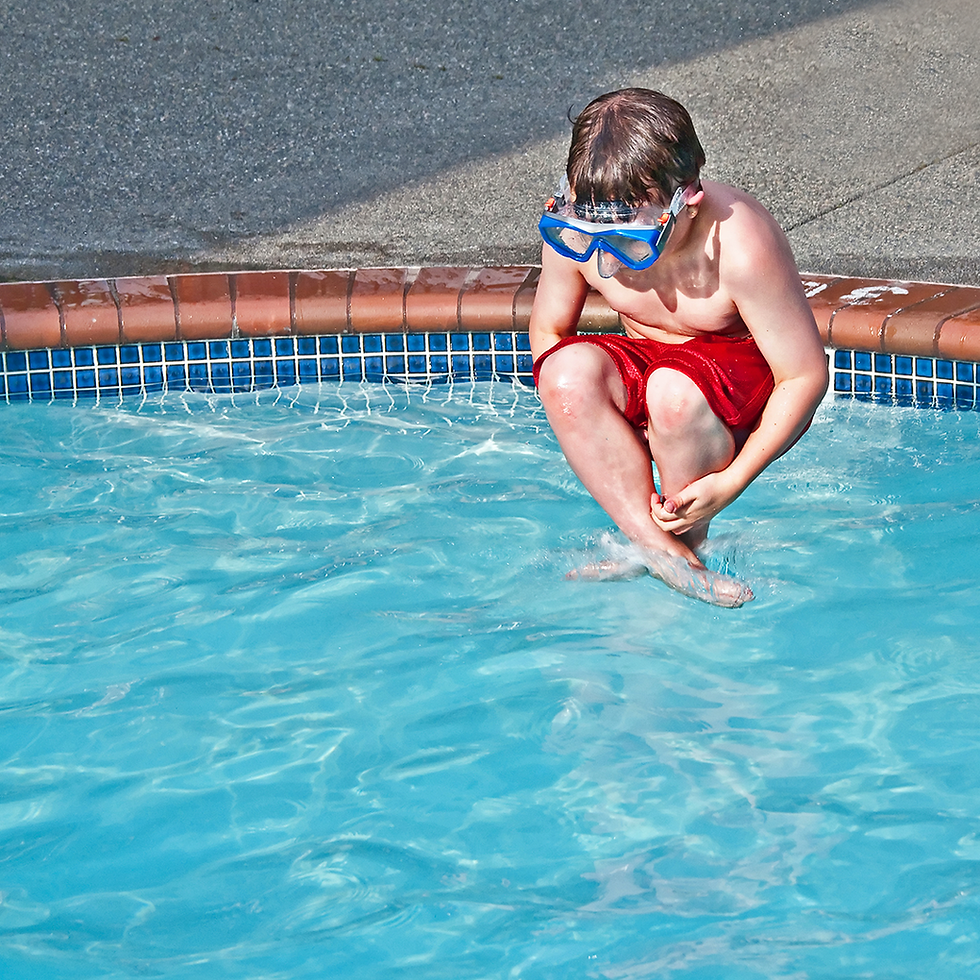Apps like AirBnB and Swimply Are Risky for Homeowners
- Mutual Assurance Society
- Aug 9, 2022
- 4 min read
Updated: Aug 29, 2022

With talk of a pending recession growing each day, many homeowners may be looking for ways to supplement their income through programs like Swimply (pool rental), Airbnb (room rental), Neighbor (storage space rental like an attic, basement, or garage), or even Sniffspot (turning your yard into a dog park).
So if you are wondering, "Should I rent out my pool or garage?" the answer is - probably not. Letting someone else use your property for pay may sound like a good idea, but many insurance experts advise against it. Here's why.
Business Exclusion
Simply put, Mutual Assurance members and many other insurance provider policies do not cover accidents or losses incurred from renting rooms, pools, yards, or storage space. Why? Because liability for business operations is excluded. Whether a “full-fledged” or “incidental” business, renting out any part of your covered property would disqualify you from coverage.
Other Reasons:
Providing one of these services could mean cancellation of your policy.
Another consideration is what is called Strict or Absolute Liability. This refers to the legal responsibility for damages or injury, even if the homeowner found strictly/absolutely liable is not at fault or negligent. In other words, if a claim is made because of something that happened by a pool/storage/yard/room renter, the homeowner may not be able to argue in court that he is not negligent.
If a homeowner loses coverage or cannot afford it because their current provider has increased the rates following an incident, insurance with another provider will be much more expensive. Not only because Mutual Assurance offers the lowest long-term rates but because homeowners are legally required to disclose any losses when applying for a new policy.
If a homeowner doesn’t disclose a prior loss, they will be found out. Most insurance companies use a central database to report their losses, so if a homeowner does not provide the correct information on an application, that can be considered material misrepresentation and void the policy.
But I have an Umbrella Policy.
Granted, an Umbrella Policy (or PULP) can offer an additional $1-5 million in liability coverage, but there is a business exclusion on Mutual Assurance’s umbrella coverage, and on most other provider’s. In other words, you would not be able to make a claim if sued.
What are the Odds? Let’s Use Swimply as an Example.
You’ve talked to your insurance provider and decided it’s worth renting your pool, even though your policy doesn’t cover anything. After all, Swimply offers up to $1,000,000 of applicable insurance-backed coverage (by Evanstone Insurance Company) and up to $10,000 if a host’s pool or property is damaged (this includes legal fees). A lot of fine print comes with this coverage; still you think, “Yes, but what are the odds that something will happen?”
According to the CDC, there are, on average, ten deaths each day from unintentional/non-boat-related drownings. Just last month, a California family settled a lawsuit with a school pool for $11 million related to an accidental drowning at a lifeguarded pool.
Drowning is the second biggest cause of death for children (after car accidents).
There are local code enforcement laws and state laws that may govern renting out a pool. Some municipalities may require lifeguards, regular water tests, and health and safety code compliance. Not meeting these could result in hefty fines in addition to the costs of staying in code.
As Lisa Eckart, Vice President of Underwriting, states, “When you rent your pool, home, or yard to someone, you are significantly increasing the likelihood that a claim could be made, whether a serious injury or a simple sprain from a fall.
We live in a litigious society and there are plenty of lawyers happy to file suit for even the smallest issues.”
What About SniffSpot? That seems harmless.
Sniffspot lets someone use your yard as a dog park for their pet. Besides not qualifying for coverage as it is still an onsite business, here’s what else could go wrong.
In Virginia alone:
In the latest compiled data, dog bite victims file an average of 385 claims per year.
The average cost per claim is $36,168.
The total value of all dog bite claims averages $14 million annually.
In the United States:
4.7 million people are bitten each year by dogs.
One in five must seek medical attention.
Other considerations:
If you have children or pets of your own, other dogs may introduce diseases and/or parasites to your property.
Landscaping and hardscaping damage.
Your yard may contain chemical hazards that could injure a dog, opening you up for liability.
Your neighbors may not appreciate barking or disturbance of the peace brought by dogs and their “shouting” owners to your otherwise quiet neighborhood.
Conclusion
Check with your insurance provider before signing up to list your home on any rental service. If you aren’t covered, you could lose most if not all of the assets you’ve worked so hard to acquire.
Here are some similar apps that would fall into the same categories:
VRBO or Vacation Rentals by Owner
Booking.com – Mostly known for finding hotel rooms, this site also lists homes and apartments.
The Plum Guide – This site accepts less than 5% of the properties that apply to be included, and they personally vet every single one against over 150 criteria. From shower pressure to the quality of the linen, you’ll know the quality will be high.
Agoda Homes
Homestay
Sonder
Blueground
TrustedHousesitters.com
TripAdvisor Rentals
Rural Retreats
Top Villas.
Sources: CDC, Marks and Harrison, New York Times, Burns & Wilcox, Swimply



Comments